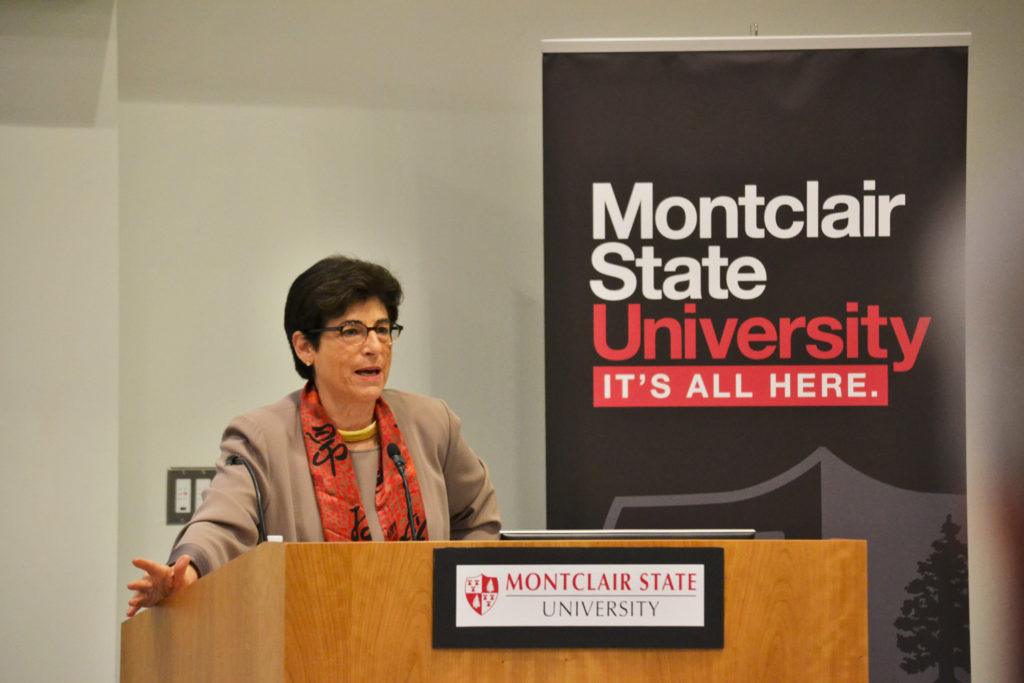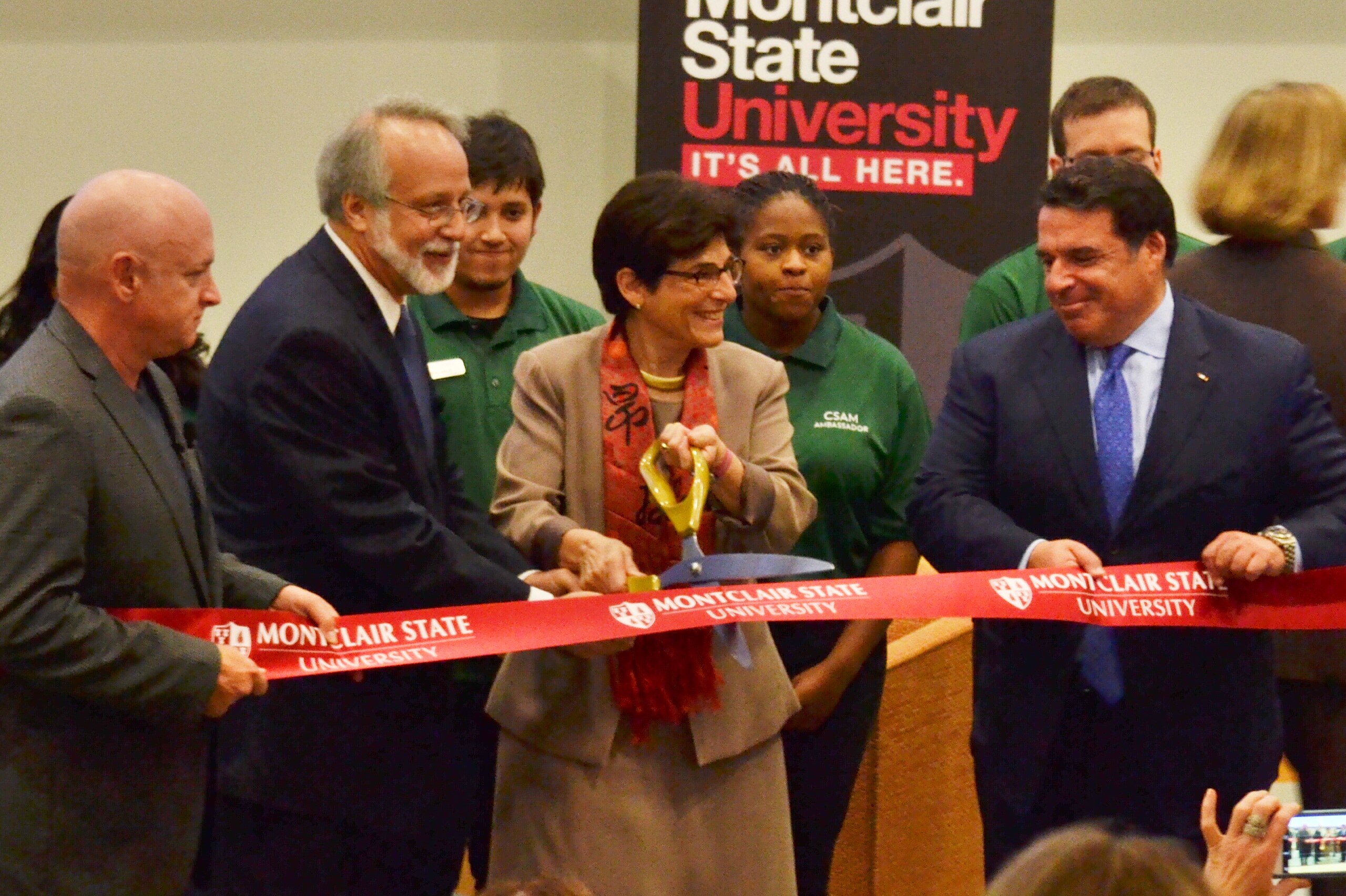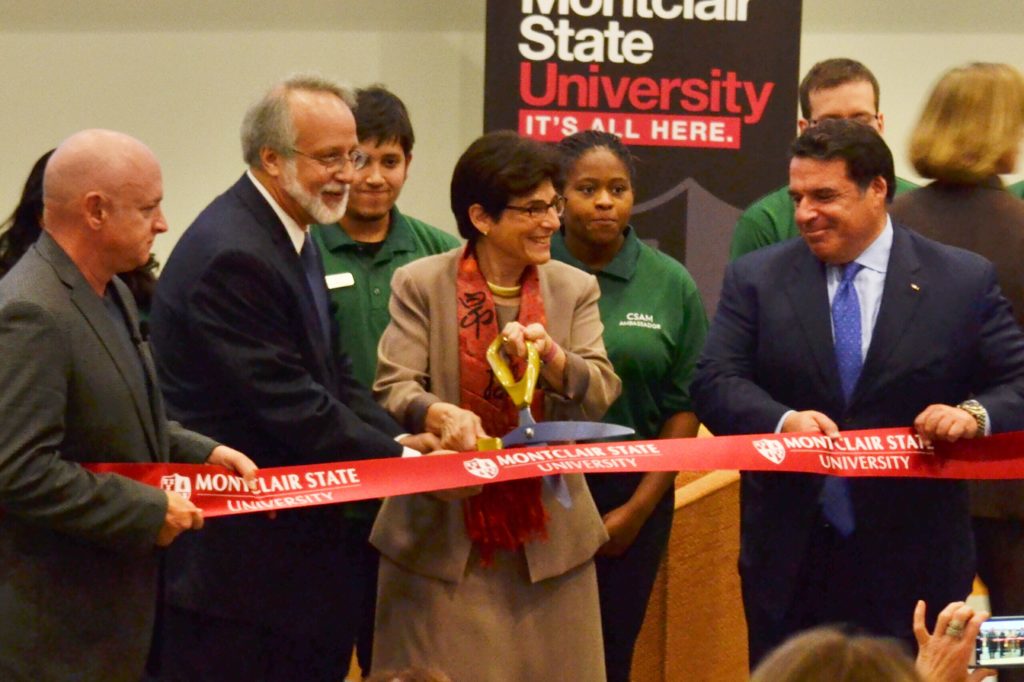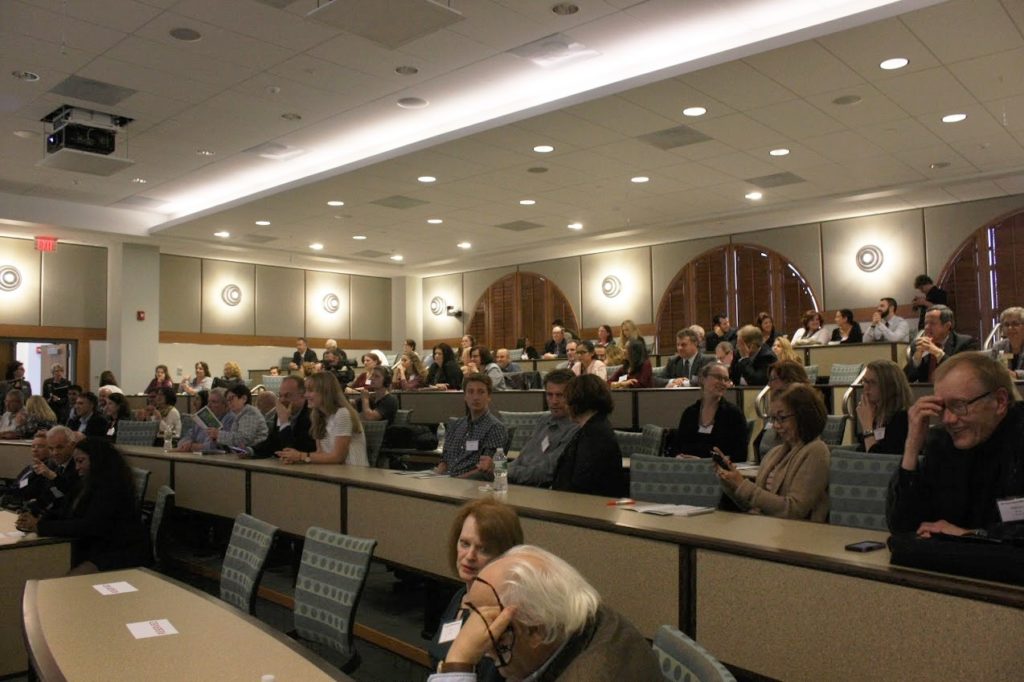The grand opening of the Center for Environmental Sciences and Life Sciences (CELS) celebrated a new era of scientific studies and programs at Montclair State University by welcoming keynote speakers, including former NASA astronaut and U.S. Navy Captain and test pilot Mark Kelly on Tuesday, Oct. 13.
Before the reception started, The Montclarion was able to sit down and have a brief conversation with Captain Mark Kelly. When asked for advice to undergraduate students who are unsure to what career they might pursue, Mark Kelly answered, “It’s always important to find what you like to do, find out what about that subject interests you and then try to go into that field. I think that is so important.”
He noted that, from a young age, he had always been interested in space and aviation. Mark Kelly, who grew up in West Orange, was inspired by Buzz Aldrin, a native of Montclair.
On his experience piloting space shuttles, he informed the audience that, on his third mission into space, he had only one fellow crew member with space flight experience and “five rookies.” He said that his twin brother, Scott Kelly, is “now spending a year aboard the space station. [It is the] first time we have ever sent somebody into space for a year.” Mark Kelly also said that, from space, one could realize how thin the atmosphere is and mentioned how important environmental studies are in combatting this issue.
At the ribbon-cutting ceremony, President Susan A. Cole welcomed the crowd filling the brand new lecture hall and spoke about the building. She began with thanks to Donald Dinallo, CEO of Terminal Construction, and Greg Bressler, Vice President of Facilities Management, for the two newly completed buildings on campus. She said that “neither of these buildings on campus would have arrived” without them. Cole also mentioned the Building our Future Bond Act Initiative, which allowed the first capital investment in New Jersey in over 25 years. “What it meant of us on this campus were two very large and important facilities,” she added.
On the importance of the opening of CELS, Cole told her audience that in the past “students were turned down because there was not an extra seat in the laboratory. Young people in New Jersey [wanted] to study science and we were turning them away. Now we are turning that around.”
She concluded her speech by stating that, with more classrooms to satisfy students’ interests in science studies, “almost 3,000 students are studying in the science disciplines.”

President Cole gave the opening address at the panel following the ribbon-cutting
Photo Credit: Patrick Eskay
Robert Prezant, Dean of College of Sciences and Mathematics, then informed the audience of various research projects that will be taking place within CELS, such as studies on parasitic diseases and work with the Passaic River Institute. After this, Prezant introduced Mark Kelly and Robert Hariri, chairman, founder and chief scientific officer for Celgene Cellular Therapeutics, to the crowd. The ceremonial ribbon was cut and the panel began.
Prezant was the moderator for the panel and one of the first topics brought up was the studies being done on Mark Kelly and his identical twin brother, Scott Kelly. Mark Kelly told the crowd that due to their identical anatomy and respective times spent in space, they are the subjects of NASA’s twin study. They are studying the effects that brutal conditions of space will have on Scott Kelly after his year-long visit to the international space station.
Mark Kelly was able to give us some insight into the rigors the human body endures while traveling in the airless vacuum. “When you leave the protection of our atmosphere and you go into orbit, you deal with physiological issues. You lose bone mass, [your bones] decalcify, your immune system gets depressed [and] if you close your eyes at night in space, you see little lighting strikes, [which are] gamma rays.”
Prezant then posed the question to Kelly and Hariri of how the scientific community should urge people to be more environmentally proactive when the media is partially skeptical of scientists. Kelly said in regard to the media skepticism, “I think there are a subset of them that have major issues with accepting scientific fact, because some of these things are no longer up for debate.”
Hariri responded to Prezant’s questions on the topic of government funding scientific research, stating, “This is a fact. Some the best investments in breakthrough, disruptive science [are] coming from [the] most successful entrepreneurs in technology.”
He then went on to mention Space-X, the first private aerospace company. The company’s CEO is Elon Musk, who is also the CEO of Tesla Motors as well as the scientific companies Kelly is a part of, such as Moon Express and Planetary Resources, two more privately owned space research companies.





